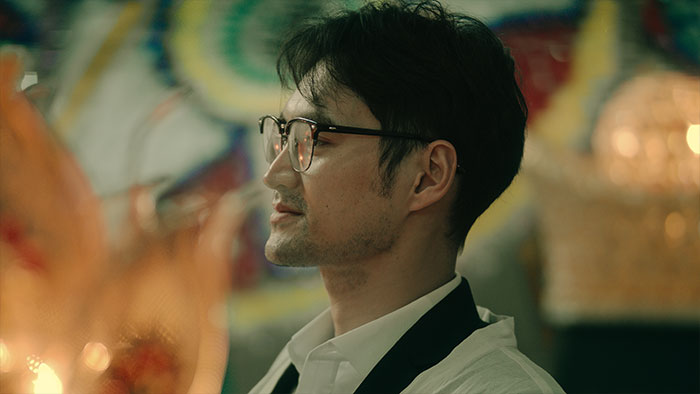
At this point, you might be thinking that Send Me to the Clouds is just another cheesy and heavy-handed movie about finding “meaning” in life. And you wouldn’t be entirely wrong. At times, the film’s ideas feel about as complex as the cliché that we should all strive to become “one with nature.” More specifically, Teng’s characterization of the painter proves quite hackneyed: he’s portrayed as a stereotypical “wise man” who regularly meditates, loves calligraphy, and makes pseudo-profound statements about the emptiness of earthly life.
Still, generally speaking, what’s striking about Send Me to the Clouds is that it avoids taking the predictable or easy way out. Even as it expresses admiration for the painter’s ascetic way of life, the film ends on an ambiguous note, suggesting that Shengnan is unable to discover a surefire way of giving her life “purpose.” As though to skewer the conventional notion that “love solves everything,” moreover, an apparent meet-cute between Shengnan and a good-looking photographer (Yuan Hong) ends up going nowhere.

“…the most memorable thing about Send Me to the Clouds is its unabashed feminism.”
Ultimately, perhaps the most memorable thing about Send Me to the Clouds is its unabashed feminism. In defiance of the stigma around sheng nu, the film highlights the constant discrimination that Teng faces as a woman, be it from a newspaper colleague (Li Jiuxiao), the painter, or the painter’s son (Liang Guanhua). And the second half of the film draws particular attention to Teng’s sexuality, portraying it as something that’s both important and worthy of respect.
Admittedly, Send Me to the Clouds’ treatment of these topics isn’t as subversive as it could be. Plenty of Western films (e.g., Elle, Let the Sunshine In, Gloria) have portrayed female sexuality with greater verve, and compared to the steamy works of other Chinese directors (e.g., Lou Ye), Teng’s film feels quite tame. Still, in a society that coins new terms to belittle professional women, Send Me to the Clouds is hardly insignificant – and when all is said and done, Teng deserves recognition for her willingness to engage in social criticism.
"…Teng deserves recognition for her willingness to engage in social criticism."


